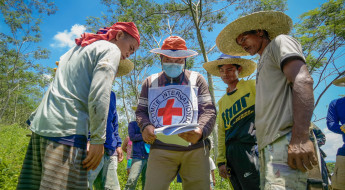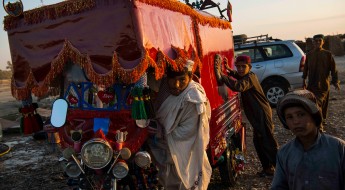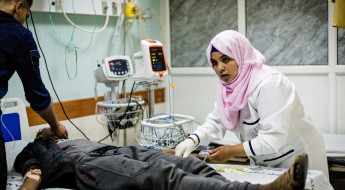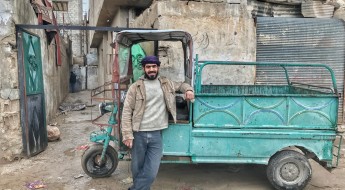How wheelchair basketball supports social inclusion in Syria
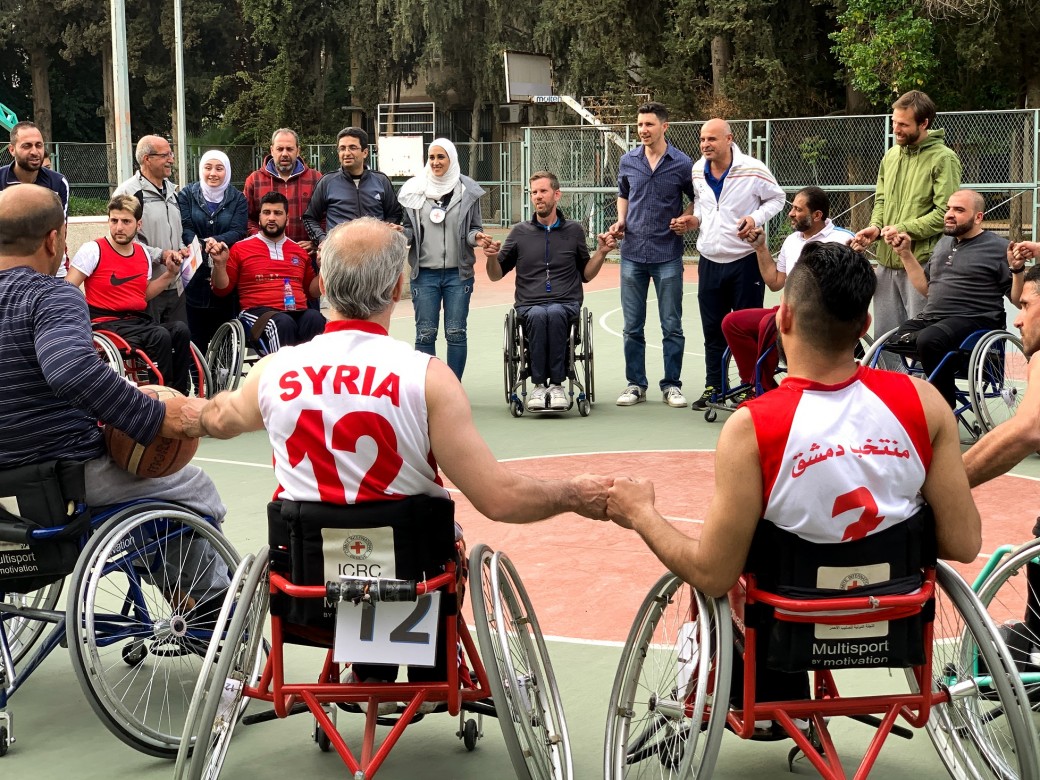 Jess Markt, also fondly known as Captain Jess, spent a week in Syria training coaches, referees, classifiers and players from the six governorates of Damascus, Homs, Aleppo, Tartus, Lattakia,Qouneitra. Markt is the ICRC's disability sport and integration advisor. He is also a wheelchair basketball trainer.CC BY-NC-ND / ICRC / May Saad
Jess Markt, also fondly known as Captain Jess, spent a week in Syria training coaches, referees, classifiers and players from the six governorates of Damascus, Homs, Aleppo, Tartus, Lattakia,Qouneitra. Markt is the ICRC's disability sport and integration advisor. He is also a wheelchair basketball trainer.CC BY-NC-ND / ICRC / May Saad Disability, whether it was caused during the war or not, remains a big challenge in Syria. In 2017, due to the ICRC's support and involvement with wheelchair basketball, teams have improved their level of activity. The support has also opened doors for newer players to join the teams.CC BY-NC-ND / ICRC / Mari Aftret Mortvedt
Disability, whether it was caused during the war or not, remains a big challenge in Syria. In 2017, due to the ICRC's support and involvement with wheelchair basketball, teams have improved their level of activity. The support has also opened doors for newer players to join the teams.CC BY-NC-ND / ICRC / Mari Aftret Mortvedt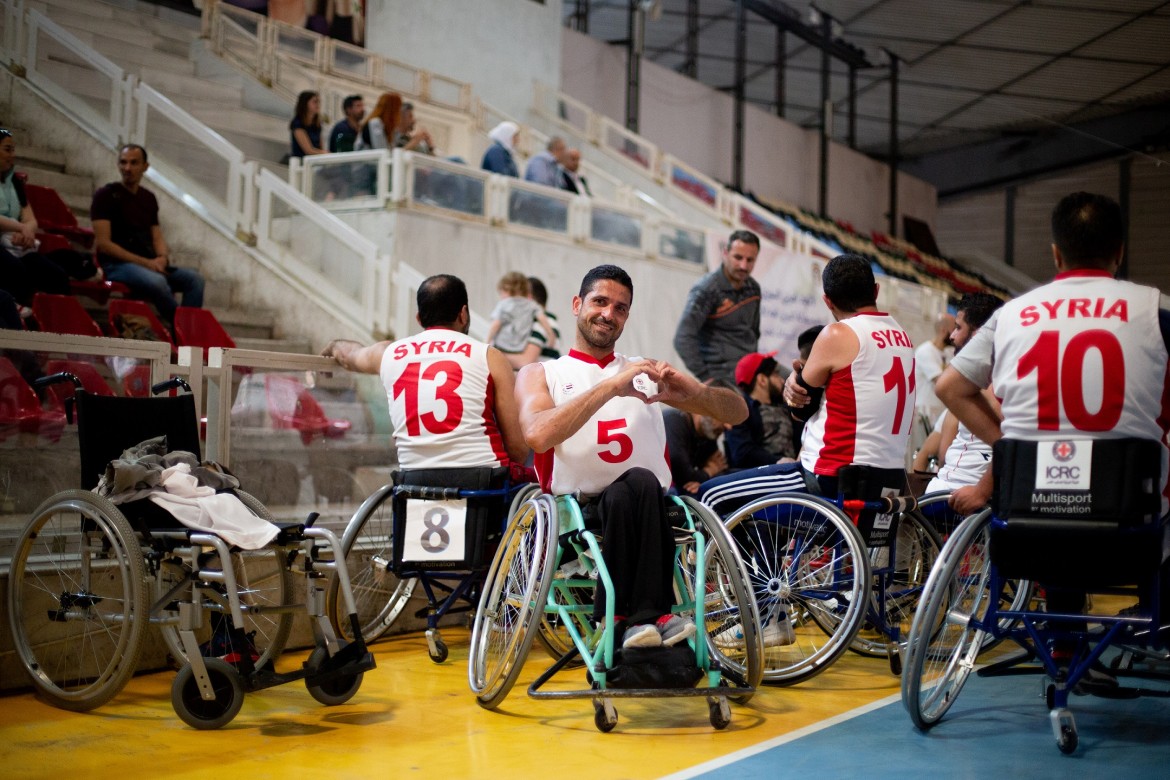 “Captain Jess taught us new ways and strategies for playing basketball. Hopefully, we will be able to improve our skills even further,” Nabil says.CC BY-NC-ND / ICRC / Mari Aftret Mortvedt
“Captain Jess taught us new ways and strategies for playing basketball. Hopefully, we will be able to improve our skills even further,” Nabil says.CC BY-NC-ND / ICRC / Mari Aftret Mortvedt The idea of wheelchair basketball was developed after World War II where a large number of soldiers and civilians sustained injuries. They felt trapped in their wheelchairs. Playing sports was a great outlet that made people feel that they could still be a part of something bigger than themselves. The ICRC’s support and involvement in wheelchair basketball started in 2011 in Afghanistan.CC BY-NC-ND / ICRC / Mari Aftret Mortvedt
The idea of wheelchair basketball was developed after World War II where a large number of soldiers and civilians sustained injuries. They felt trapped in their wheelchairs. Playing sports was a great outlet that made people feel that they could still be a part of something bigger than themselves. The ICRC’s support and involvement in wheelchair basketball started in 2011 in Afghanistan.CC BY-NC-ND / ICRC / Mari Aftret Mortvedt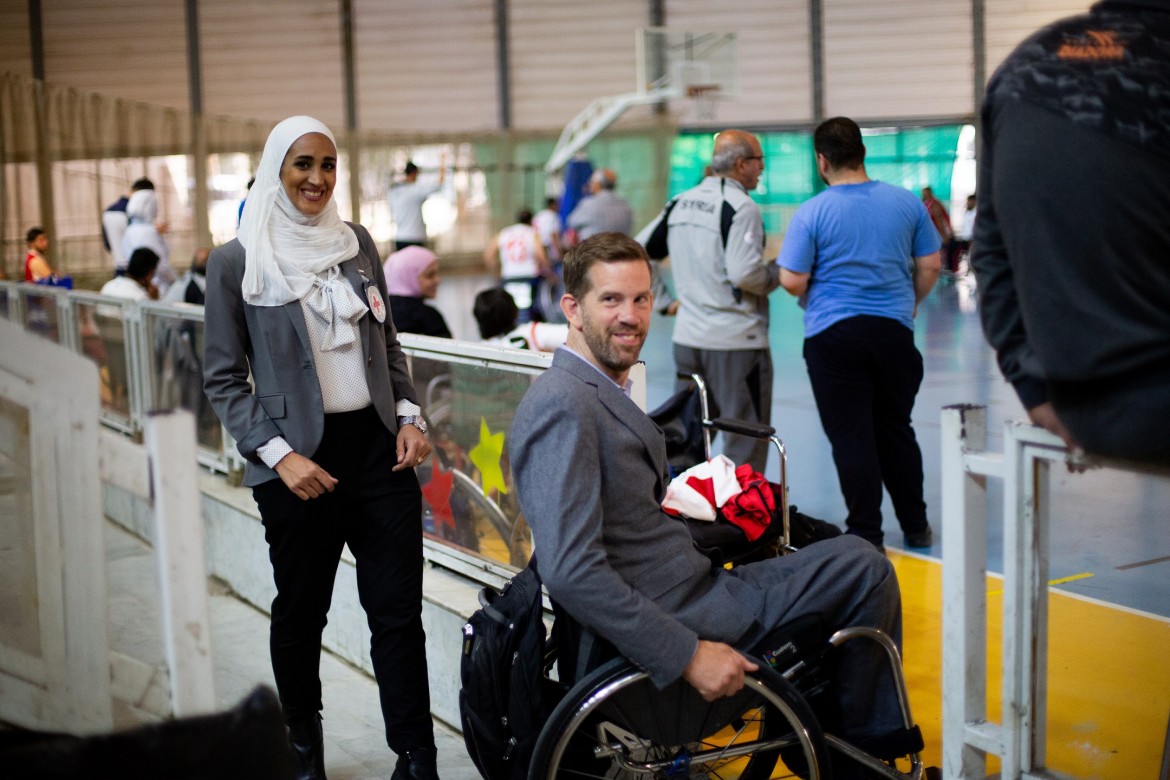 “A disabling injury can be difficult. But, whether you have lost a limb or are paralyzed, there is still so much more you can do. If I hadn’t been paralyzed when I was 19 years old, I would not be here in Syria, doing the best job in the world – teaching these guys how to play basketball,” Markt says.CC BY-NC-ND / ICRC / Mari Aftret Mortvedt
“A disabling injury can be difficult. But, whether you have lost a limb or are paralyzed, there is still so much more you can do. If I hadn’t been paralyzed when I was 19 years old, I would not be here in Syria, doing the best job in the world – teaching these guys how to play basketball,” Markt says.CC BY-NC-ND / ICRC / Mari Aftret Mortvedt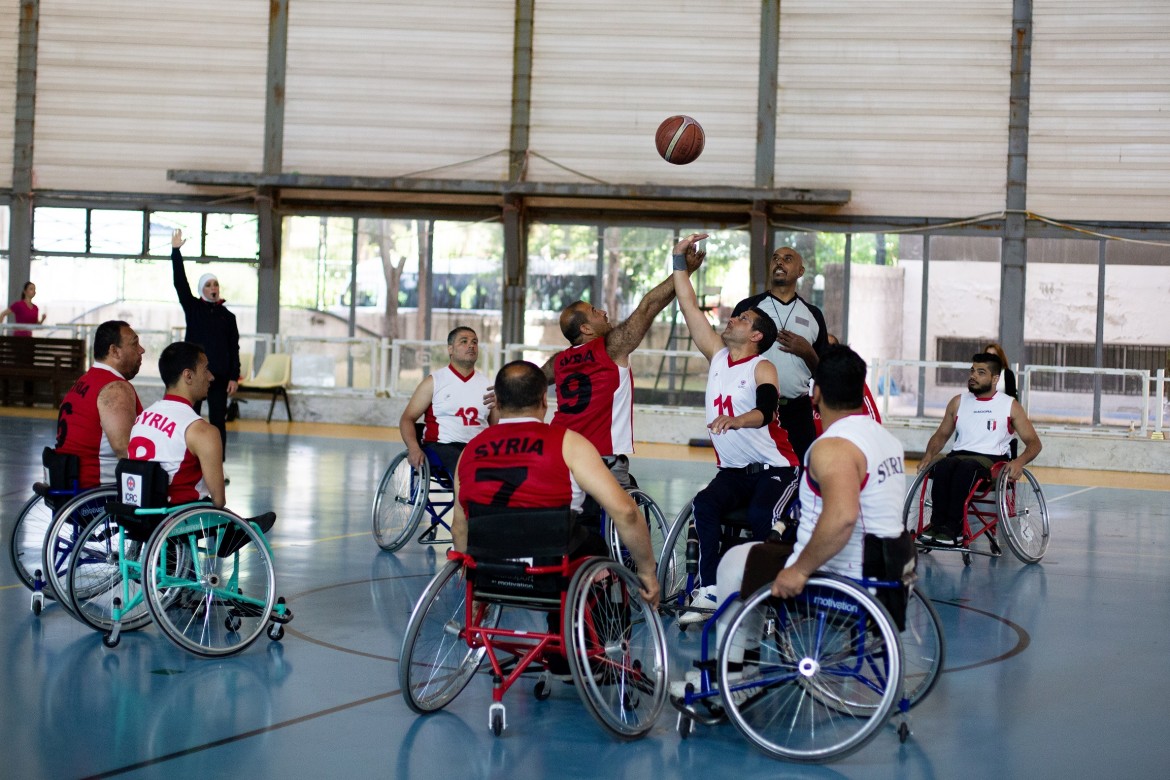 During the week long training, Markt, and even the players, noticed improvement. The achievement was celebrated with a match inside the sports stadium in Damascus.CC BY-NC-ND / ICRC / Mari Aftret Mortvedt
During the week long training, Markt, and even the players, noticed improvement. The achievement was celebrated with a match inside the sports stadium in Damascus.CC BY-NC-ND / ICRC / Mari Aftret Mortvedt Shireen is the only female referee at the training. In her hometown Homs, they call her the “overall player” because she plays basketball, tennis and handball, along with several other sports.CC BY-NC-ND / ICRC / Mari Aftret Mortvedt
Shireen is the only female referee at the training. In her hometown Homs, they call her the “overall player” because she plays basketball, tennis and handball, along with several other sports.CC BY-NC-ND / ICRC / Mari Aftret Mortvedt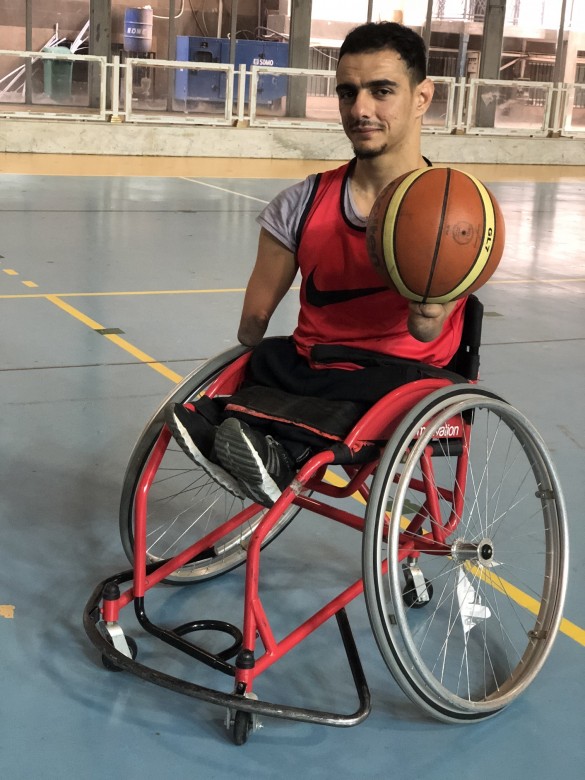 Laith was born with missing limbs, a situation which he believes allowed him to adapt better than if it had happened later in his life. He believes in the saying: “Be more of a producer than a consumer”. With the support of his parents, he is now playing with the national team. He believes that hard work always pays off.CC BY-NC-ND / ICRC / May Saad
Laith was born with missing limbs, a situation which he believes allowed him to adapt better than if it had happened later in his life. He believes in the saying: “Be more of a producer than a consumer”. With the support of his parents, he is now playing with the national team. He believes that hard work always pays off.CC BY-NC-ND / ICRC / May Saad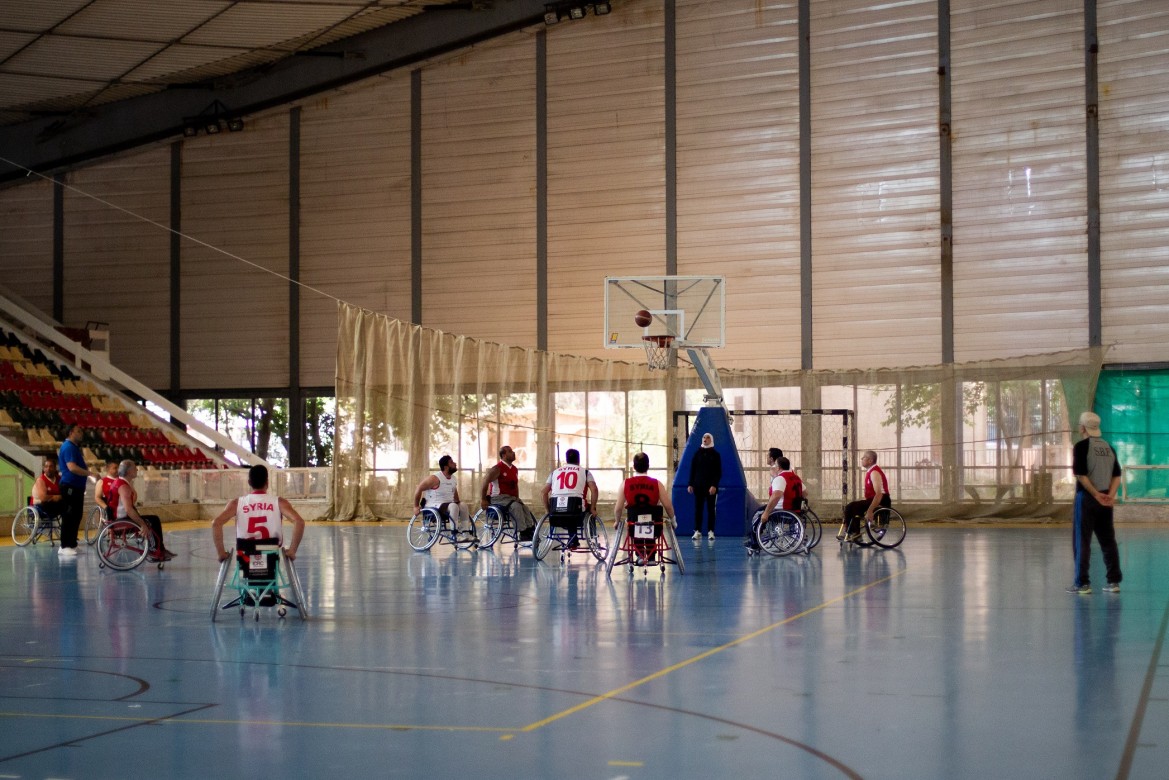 The Syrian wheelchair team recently played in a tournament in Beirut. This was the first time they ever played internationally, and they came in second after Afghanistan. Markt was there and he was amazed by the Syrian team’s performance and said that he believes they are already off to a good start.CC BY-NC-ND / ICRC / Mari Aftret Mortvedt
The Syrian wheelchair team recently played in a tournament in Beirut. This was the first time they ever played internationally, and they came in second after Afghanistan. Markt was there and he was amazed by the Syrian team’s performance and said that he believes they are already off to a good start.CC BY-NC-ND / ICRC / Mari Aftret Mortvedt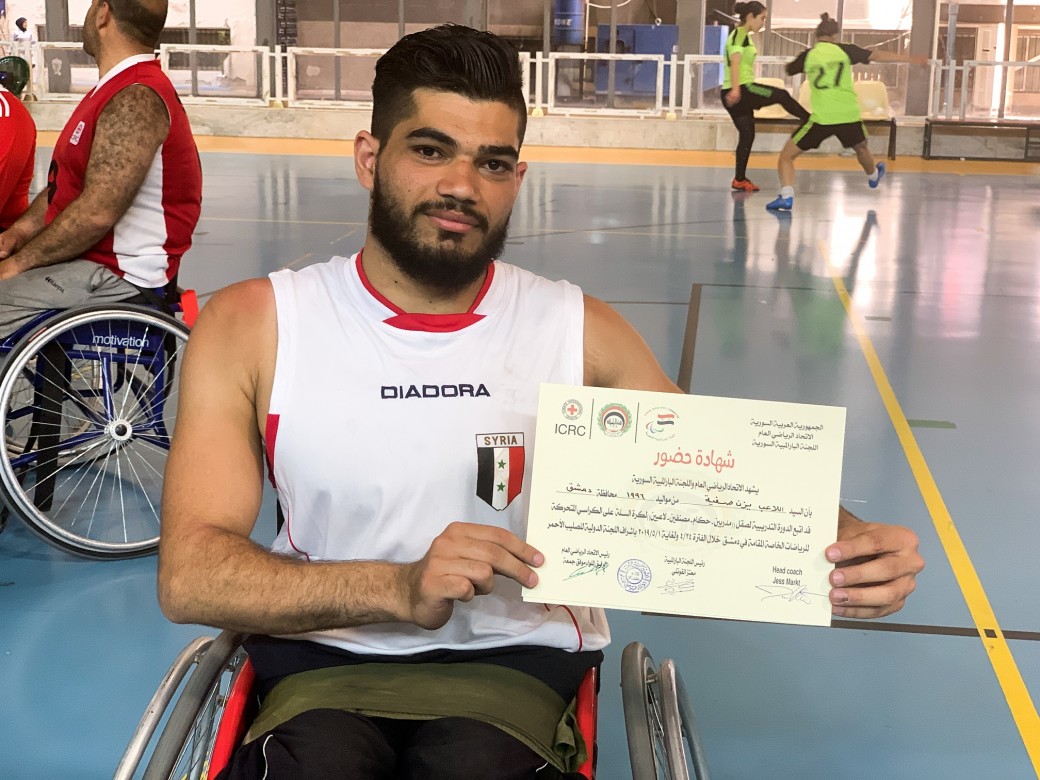 “Fifteen years ago, I got into a car accident and my back was injured, which left me paralyzed. I did nothing for three years, then I decided to get up and start living my life again. I looked for activities that could help me to express the feelings inside me, and found out that there is nothing better than sports,” Yazan explains.CC BY-NC-ND / ICRC / May Saad
“Fifteen years ago, I got into a car accident and my back was injured, which left me paralyzed. I did nothing for three years, then I decided to get up and start living my life again. I looked for activities that could help me to express the feelings inside me, and found out that there is nothing better than sports,” Yazan explains.CC BY-NC-ND / ICRC / May Saad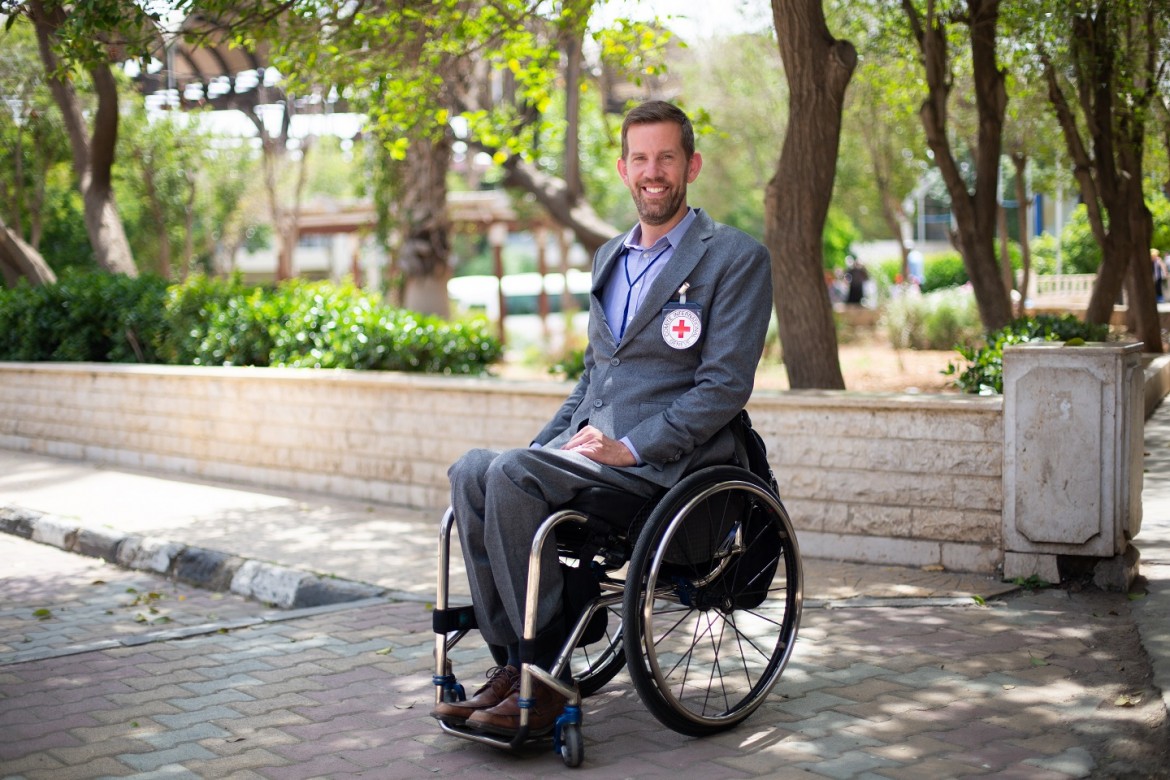 “For me it has been a blessing, and I hope that other people with a situation like mine, could find that positivity as well,” Markt said.CC BY-NC-ND / ICRC / Mari Aftret Mortvedt
“For me it has been a blessing, and I hope that other people with a situation like mine, could find that positivity as well,” Markt said.CC BY-NC-ND / ICRC / Mari Aftret Mortvedt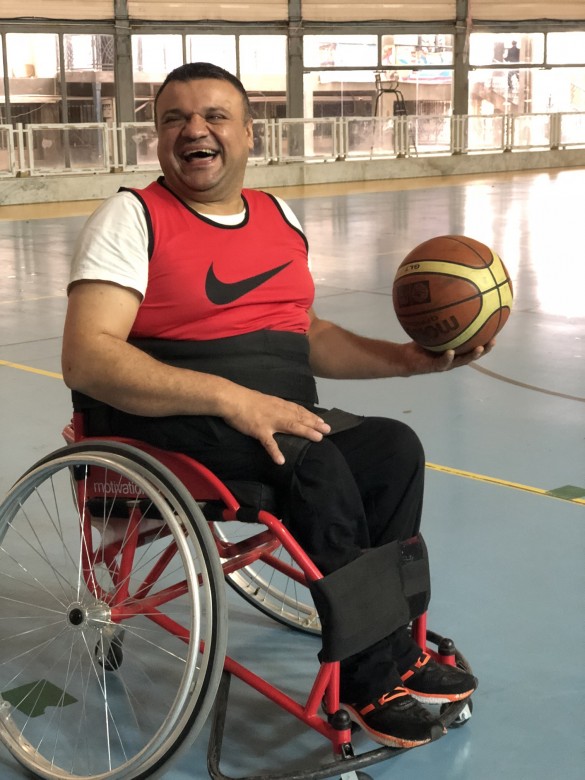 The love, empathy and harmony in the team is what makes Abd Al Razzak the happiest. Razzak is a former ping pong champion in Syria. He believes that every person has a talent that makes them shine like no other.CC BY-NC-ND / ICRC / May Saad
The love, empathy and harmony in the team is what makes Abd Al Razzak the happiest. Razzak is a former ping pong champion in Syria. He believes that every person has a talent that makes them shine like no other.CC BY-NC-ND / ICRC / May Saad
In Syria, thousands of people live with disabilities. Getting assistance can be difficult due to the prolonged conflict and lack of access to health services. Sports can help rebuild confidence and strength.
By May Saad, ICRC Syria

